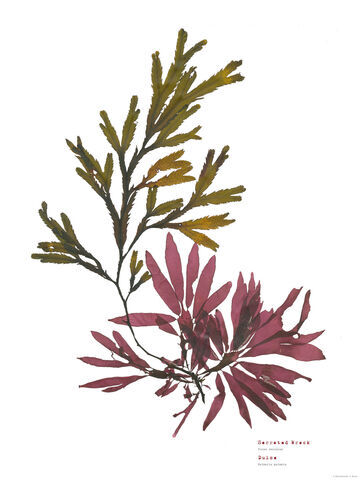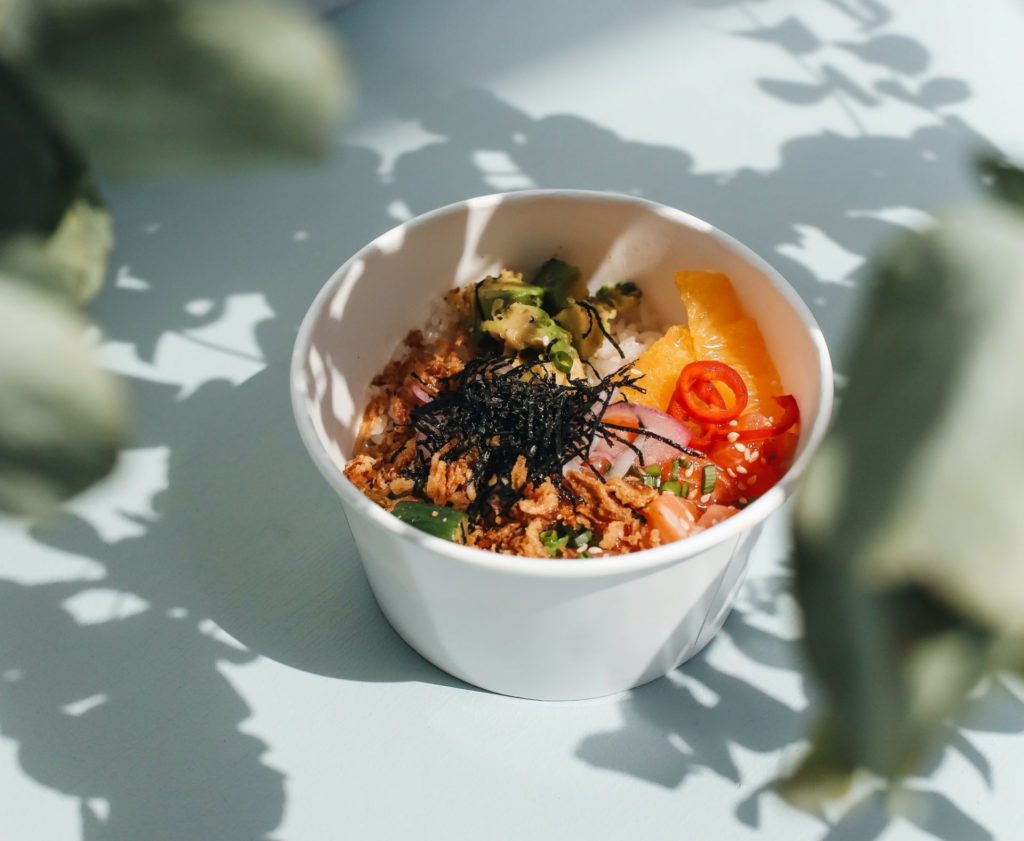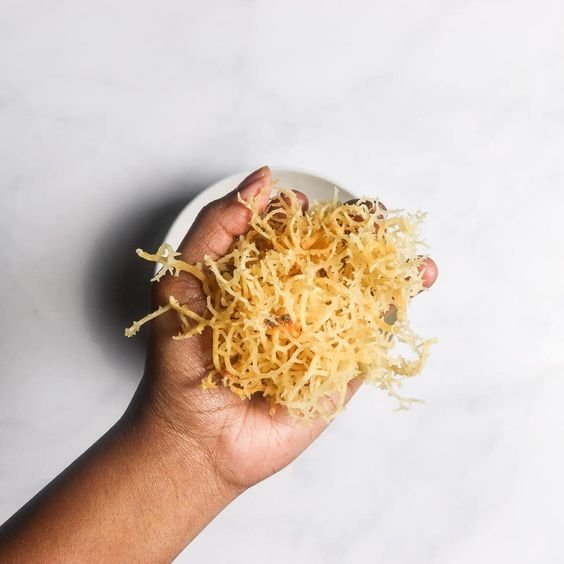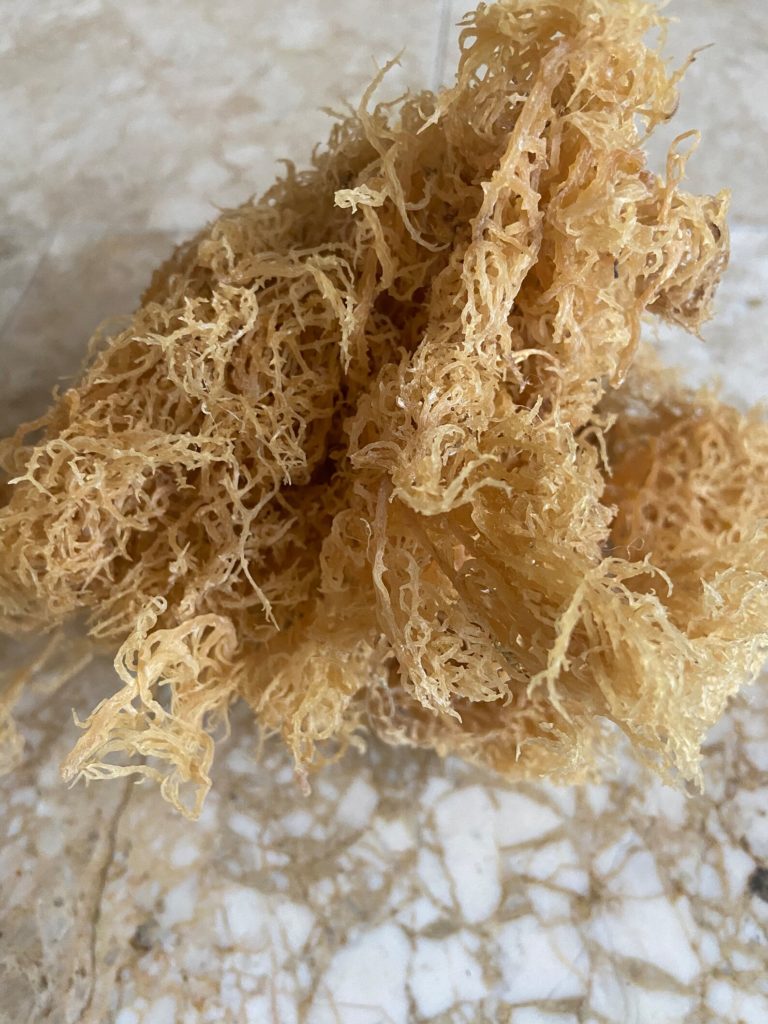TikTok has Turned Irish Famine Food Into a “Cure-All” Gel


Japanese classic Asahi Super Dry is to be celebrated in a ‘Beyond Expected’ event this November at Opium Botanical Garden. You can get tickets for this once-off event here. Tickets cost €54.00 for the 17:30 sitting, which includes karaoke, and €49.00 for the 20.30 sitting. Reservations are open and strictly limited. Please drink Asahi responsibly. Visit drinkaware.ie for more info
TikTok has Turned Irish Famine Food Into a “Cure-All” Gel
Words: Shamim de Brún
Sea moss is being touted as a miracle supplement that can do everything from helping you have better sex to clear skin.
Eating this algae is the latest in wacky wellness trends that jars and gives red flag-level wiggins in equal measure. It’s often difficult to sort the wheat from the chaff when it comes to eating collagen, kale, or the outright dangerous perineum sunning so we’re here to give it a go.
The Trend
Right now on TikTok, #seamoss has over 420 million views; Google searches for ‘sea moss’ have hit record highs. Eating your way to better skin isn’t a new thing. Everything from drinking enough water to high-zinc foods like oysters are scientifically backed up.
Users have claimed that the supplement has helped them with more issues than Vogue. From losing weight to having better sex and clearer skin. But what is it exactly, and should you be eating it?
What is Sea Moss?

‘Sea moss’ is a generic term covering species of algae which grow in coastal waters. Irish Sea Moss is actually the most famous of these. Its Latin name is Chondrus crispus but it’s commonly called Carrageen moss.
The greatest diversity of seaweed in Ireland is found on the west coast of Ireland. Specifically in the Aran Islands, Connemara. Also known as chondrus crispus, red seaweed or sea veg, Irish sea moss is a type of algae that grows year-round in tidepools and inlets.
According to The Sea Moss Boss that’s why ancestors ate it during The Great Famine. It grew in popularity after Irish immigrant labourers brought the moss to Jamaica. There, locals served it as a drink boiled in milk with sugar or honey, plus various spices such as vanilla, cinnamon, and nutmeg.
What does it taste like?
Irish moss went on to become a favourite among athletes and bodybuilders because it’s high in calories and rich in protein. It’s been purported to have a wide range of other health benefits.
The gelling properties of Carrageen moss mean it is already found in foodstuffs such as ice cream, salad dressings, and toothpaste. Dillisk, on the other hand, is a small sweet, tasting sea moss. Some other varieties of seaweeds have a salty, rich, savoury taste known as umami.

What are the Benefits
Sea moss’s status as a superfood went viral on TikTok recently, where videos allege that the supplement can help with everything people could dream of. Including weight loss, irritated skin, libido and fertility.
This bodybuilder swears by it, and that skin-fluencer can’t believe she never knew about it. If you’re scrolling the list goes on and on and seems to get more evangelical and devout by the minute.
It has been used for hundreds of years in coastal Irish culture. The recent sure in sea moss popularity is due to the teaching of the late Dr Sebi. According to Dazed, Sebi was “a herbalist who was known to cure different diseases” and believed that sea moss could cure and heal all ailments.”
The major caveat to that, though, is that Dr Sebi is actually a man named Alfredo Bowman, who never completed any medical training and in 1987 was arrested (and then acquitted) in New York after claiming he could cure AIDS with herbal remedies and for practising medicine without a license.
While this would be enough for many of us to be suspicious about the trend, many new businesses have capitalised on the interest in our native moss. Many companies and have twisted it into all sorts of pills, powders, lotions, gummies and, most commonly, gel.
Most of these products seem to magically remove most, if not all, the calories in Sea Moss while seemingly maintaining the benefits. Which is a tall order in many foods.
Do These Products Work Though

Taking untested food supplements is very dangerous and can lead to liver failure, heart problems and more. No Sea Moss product is FDA or EU-approved. Beyond that, I couldn’t track down any reliable peer-reviewed studies on it. There was this one study conducted on rats that suggests sea moss may support gut health and immune response. But in all seriousness, further research is needed before scientists can draw any conclusions about sea moss’s benefits in humans.
Theoretically, Sea Moss could be a sustainable way of consuming a major amount of vitamins. But the meteoric rise in its popularity means there are many dangerous products out there. But, equally anecdotal evidence suggests that the benefits can be great when you’re using good-quality sea moss.
Classic Irish famine-era sea moss is like other sea vegetables. It absorbs trace minerals from the seawater it grows in. This makes it nutrient-rich and a useful source of some of the harder-to-get nutrients, like the mineral iodine.
Some species of sea moss, however, have higher iodine levels than others. Excessively high levels of iodine can affect thyroid function, so be careful even with the legit stuff.

Sea moss can absorb heavy metals like mercury, arsenic and lead. Typically only in small amounts. But again, if you’re going to go hell for leather on eating sea moss and other seaweeds regularly, you should bear in mind what the building effects can be.
Overall, as with most supplements, ensure to get them from a reliable source and moderation is key. But if you’re careful, it sounds like there are enough benefits to give sea moss a go. It might even give you a new appreciation for the humble potato.
Elsewhere on CHAR: Why I Hate The Word Foodie

Japanese classic Asahi Super Dry is to be celebrated in a ‘Beyond Expected’ event this November at Opium Botanical Garden. You can get tickets for this once-off event here. Tickets cost €54.00 for the 17:30 sitting, which includes karaoke, and €49.00 for the 20.30 sitting. Reservations are open and strictly limited. Please drink Asahi responsibly. Visit drinkaware.ie for more info
